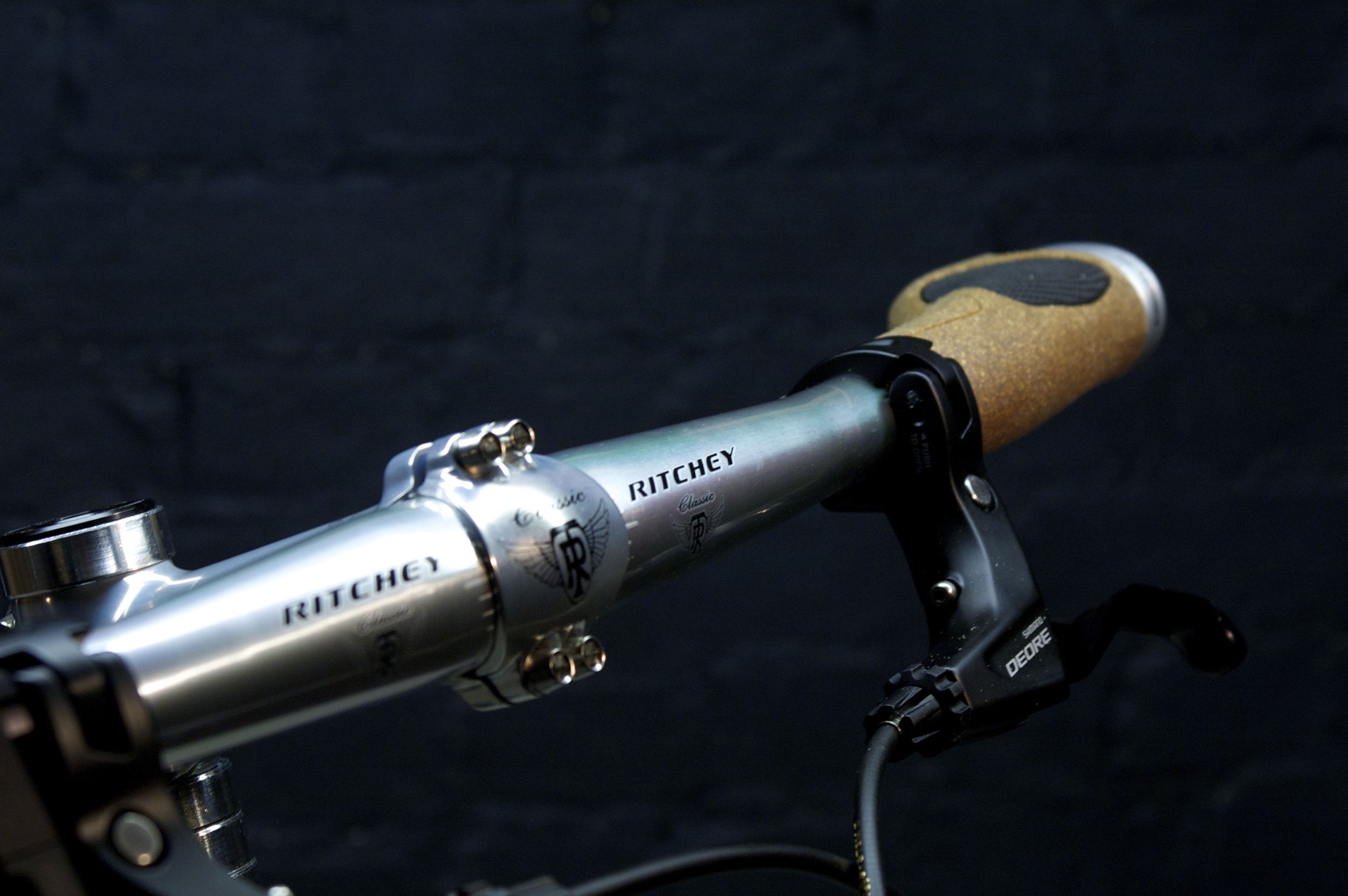About Oxford Bike Works
Our focus is quality: quality British-built touring bicycles, with quality components and accessories.
We avoid the temptation to use new technology to justify inflated prices, as is often the case with volume manufacturers. Instead, we use tried and tested principles when designing and building our bikes. The longevity of our bikes is important to us, so we offer our bikes with a 10 year frame warranty and 2 year parts warranty included, ensuring the cost of a bike is a fixed cost, not an ongoing one.
Our bikes come with quality components as standard - pedals, racks and mudguards - and so the prices on our website are the prices you can expect to pay when you ride out of the shop and onto your tour. Of course there is scope for customisation, as no two riders want the same thing, but our standard models have been designed to be ridden as-is without further modification. We don't fit components that are the newest or most expensive, instead we choose components that have stood the test of time and won't wear out quickly. We want you to forget about the bike once you’re on it, and just ride, knowing that your bike will take you from A to B with a minimum of fuss and drama. Whilst the choice of bike is important, the most important aspect of cycle touring is the experience. You need a bike that, once you're on it, does exactly what you expect of it, reliably and without drama, leaving your mind free to enjoy the experience.
Some bike manufacturers offer over-engineered, hi-tech solutions to problems you never knew existed. How many times, for example, have your brakes not stopped you quickly enough? Yet volume manufacturers want to sell you disc brakes based on this 'risk'. In reality, V-brakes work perfectly well for a fraction of the cost. They can be easily fixed by the owner if you're a long way from a bike shop. They don't rub, and they don't get as easily damaged in transit. Disc brake pads will need replacing at the shop, but with V brakes you can do it yourself for pennies. Thus our frames have been designed for V-brakes: effective, reliable, inexpensive, and able to be repaired or replaced the world over.
Likewise, unless you're planning to ride across Outer Mongolia, suspension is not needed on touring bikes. In 99% of situations, particularly on paved roads, it's simply extra weight and complexity for little or no benefit, and with an increased chance of mechanical failure. You probably won't be able to do extreme downhill riding, cross-country racing or trials biking, but our bikes will do nearly everything else.
Tyres are an important choice that depend strongly on how you ride and what surfaces you will be riding on. Current trends in long distance cycling are towards thicker tyres. While more puncture proof and longer-lasting, this adds to rotational weight and increases friction, which slows you down. We can guide you through tyre choice, depending on your intentions for your bike and your style of touring.
The key to satisfaction on a bike
The key to a comfortable bike is getting the five points of contact exactly right. Your backside, hands and feet must be in the right position to support your back and neck, and this requires the right configuration of saddle, handlebars and pedals for the intended rider. Volume manufacturers cannot provide this.
Our individual fitting and building process includes a personal bike fitting session with you at our studio just outside Oxford. We're 50 minutes by rail from London Paddington, Bristol and Birmingham. If you are too far away to do this, we are happy to take your measurements over the phone and then build the bike, though we strongly recommend an in-person visit. We then wrap and pack the finished article so that it arrives as you expect it. We can also offer a personalised delivery and fitting service, for those without the time to make the journey themselves.
Why steel frames?
Chrome-molybdenum steel alloy is the preferred frame material for touring bikes today. It is relatively light and strong, easy to weld in case of damage, and resistant to corrosion. Aluminium, while cheaper to manufacture in bulk, is prone to failure and fatigue. It may be lighter, but 300 grammes per frame doesn't amount to much once you're riding with a full complement of luggage. If carbon emissions matter to you, the manufacture of an aluminium frame uses 5 times as much energy as a steel frame.
Carbon frames can save you another 200 grammes over an aluminium frame, but are very vulnerable to damage – the type of damage you are likely to sustain when touring. Those little knocks and bumps can turn into critical weaknesses and mean that at some point in the future you will cease to trust your frame completely. With steel, just use a paint touch up kit to keep your frame in perfect condition and corrosion free.
Titanium is increasingly popular as a top-end touring frame material, combining low weight, flex and corrosion resistance – but you can expect to pay the best part of a thousand pounds for the privilege. At Oxford Bike Works we believe it better to spend the extra cost of a titanium frame on upgrading components on the bike – or an extra week’s tour! To make a titanium bike frame also uses 20 times the amount of energy needed to make an equivalent steel one.
At Oxford Bike Works we believe that steel remains the most appropriate material for touring bike frames. And we're so confident in the quality of our frames that we offer each original owner a 10 year guarantee against structural corrosion and failure.




